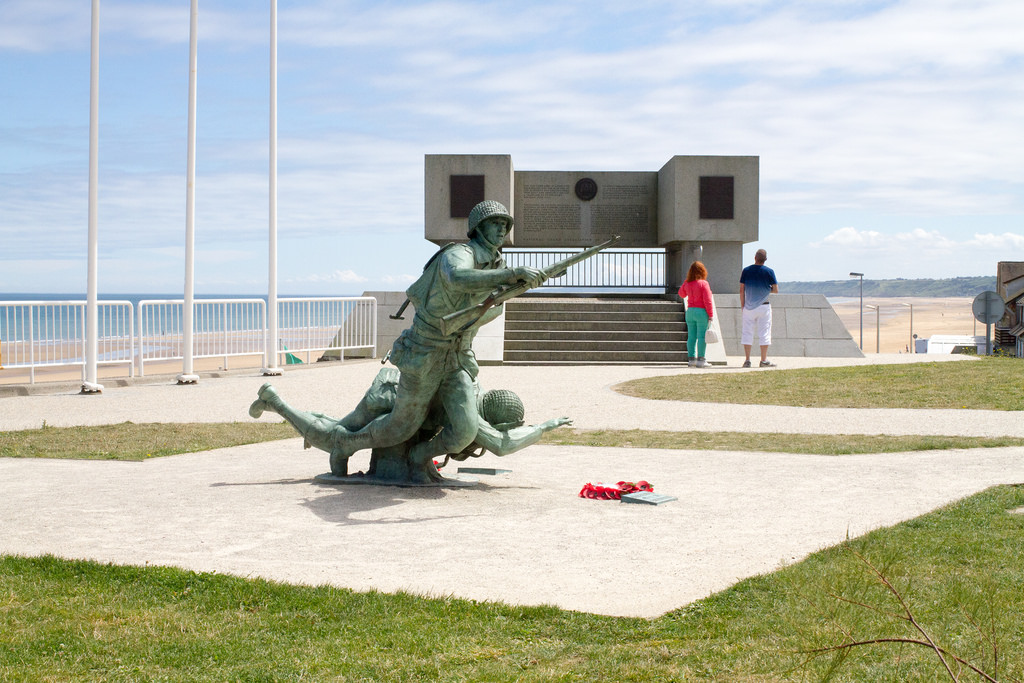I’m going to resume my travelogue of France in July, which was interrupted for a while by my short trip to France in November.
The place that suffered the most damage during the landing operation.
It was less than an hour by car from Sainte-Mère-Eglise, one of the fierce battlefields of the Normandy landings and airborne operations.
First of all, Omaha Beach was a code name for the Allies during the Normandy landings.
Omaha Beach was specifically the beach between Sainte-Honorine-des-Pertes and Vierville-sur-Mer. However, thanks to this code name, the name Omaha Beach has now become commonplace.
Now, I’ll write a brief outline of the Normandy landings (incidentally, the official name is “Operation Neptune”) at the start.
First, there were two types of troops: paratroopers who attacked from the air and landing troops who attacked from the sea.
Paratroopers are the troops who parachute down from the sky to attack the bases occupied by the Germans. Sainte-Mère-Eglise, which we visited that morning, was the first town to be liberated from the Germans by these paratroopers. The operation was carried out in the early hours of June 6, 1944.
Then, the landing force. It was an operation to attack the German army by landing from the coast, but it was to execute the landing operation from five places at the same time. The time of execution was also June 6, 1944, 6:30 a.m.
These five places = beaches were Sword Beach, Juneau Beach, Gold Beach, Utah Beach, and Omaha Beach.
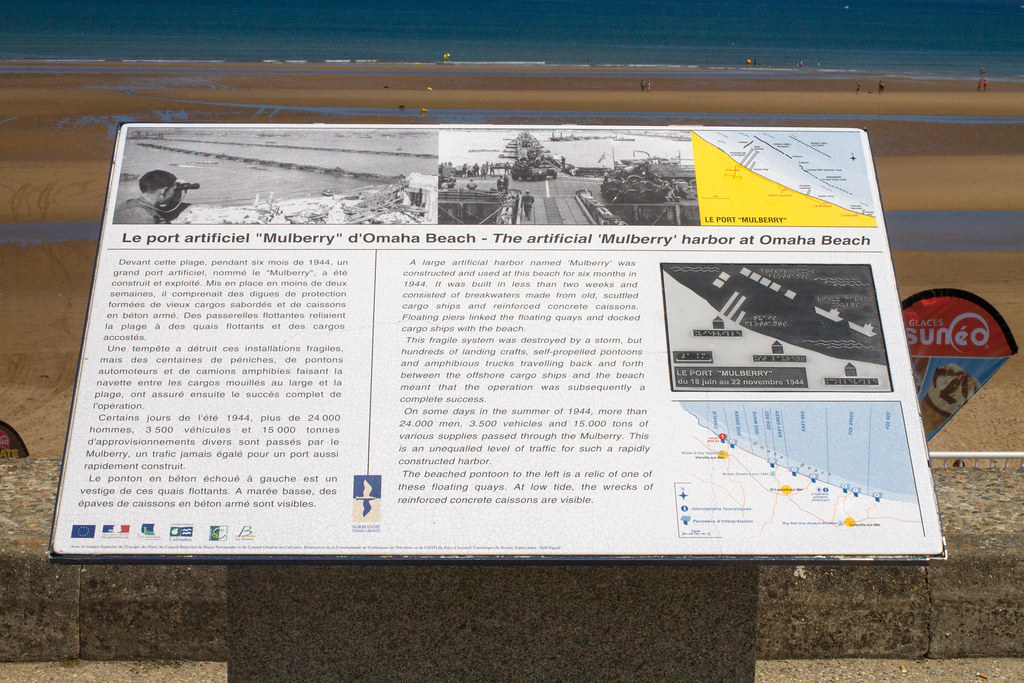
And of these, Omaha Beach is said to have been the worst landing operation. Compared to the other beaches, it was less equipped with special armored vehicles, and many of them sank before reaching the shore due to the high tide during the landing. In addition, there were German troops on standby who were stronger than the Allied forces had previously anticipated.
For this reason, the Allies struggled mightily when they first landed. They suffered a great deal of damage. As a result, the Allies regained their footing and the landing operation was a certain success, but it was also called “Bloody Omaha” because it caused the most casualties compared to other landing operations.
Current Omaha Beach
Omaha was the site of such a tragic battle, but today it is very calm and peaceful. To be honest, it was not a beautiful sandy beach, but it was a very wide and calm beach that stretched for kilometers, and it was a perfect beach for swimming, playing ball games such as soccer and volleyball, and relaxing.
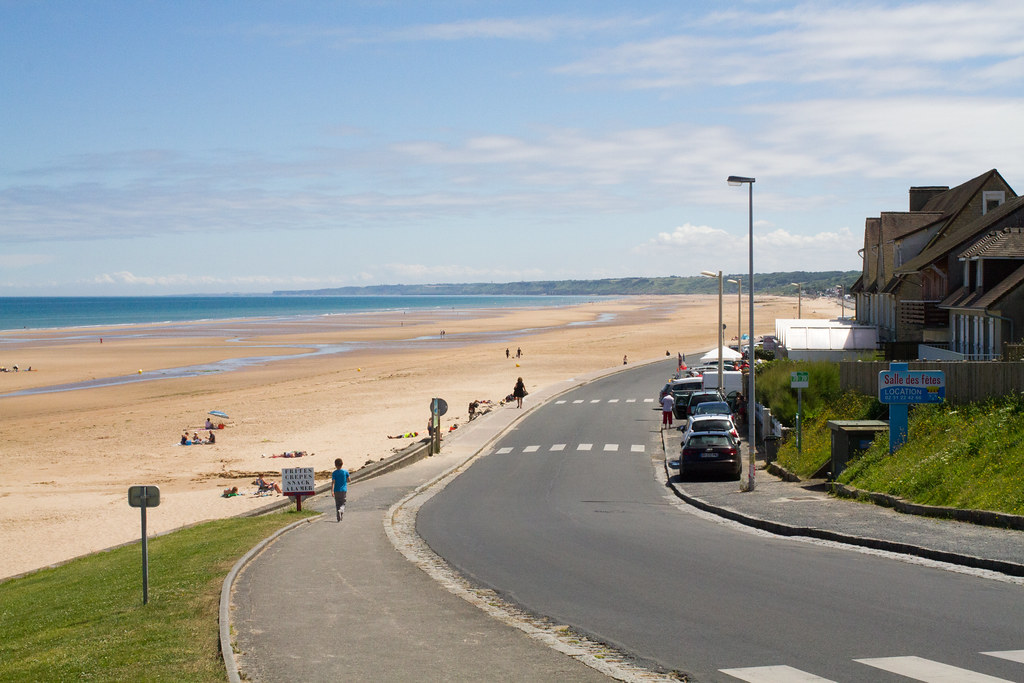
And in each place of this coastline that continues for about several kilometers, there was a monument of this landing operation relation. The following two pictures are the most west side of the beach.
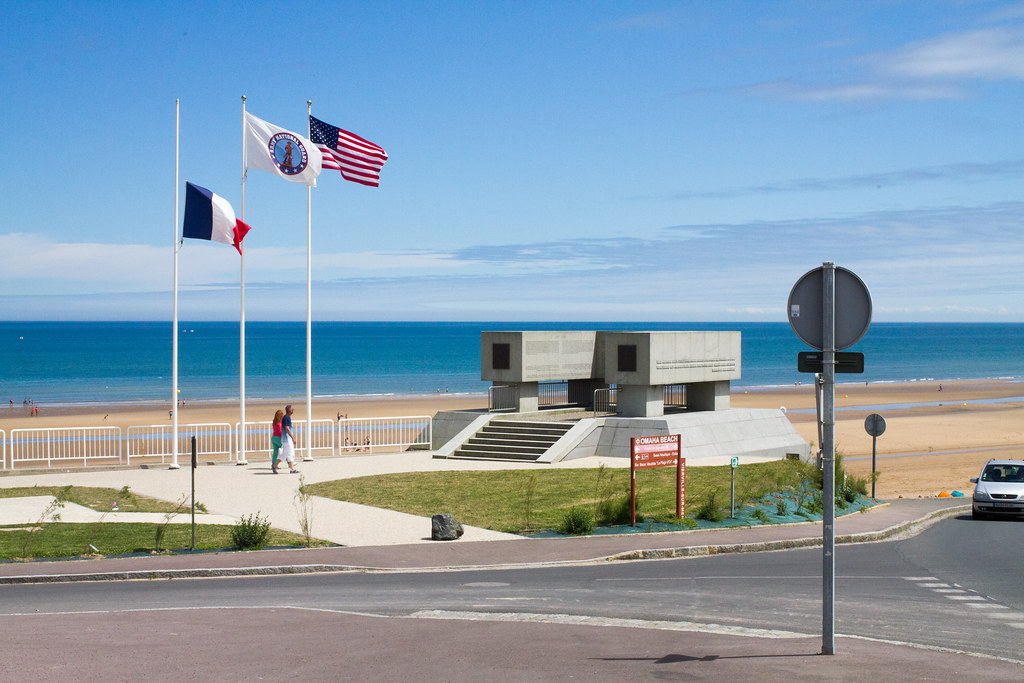
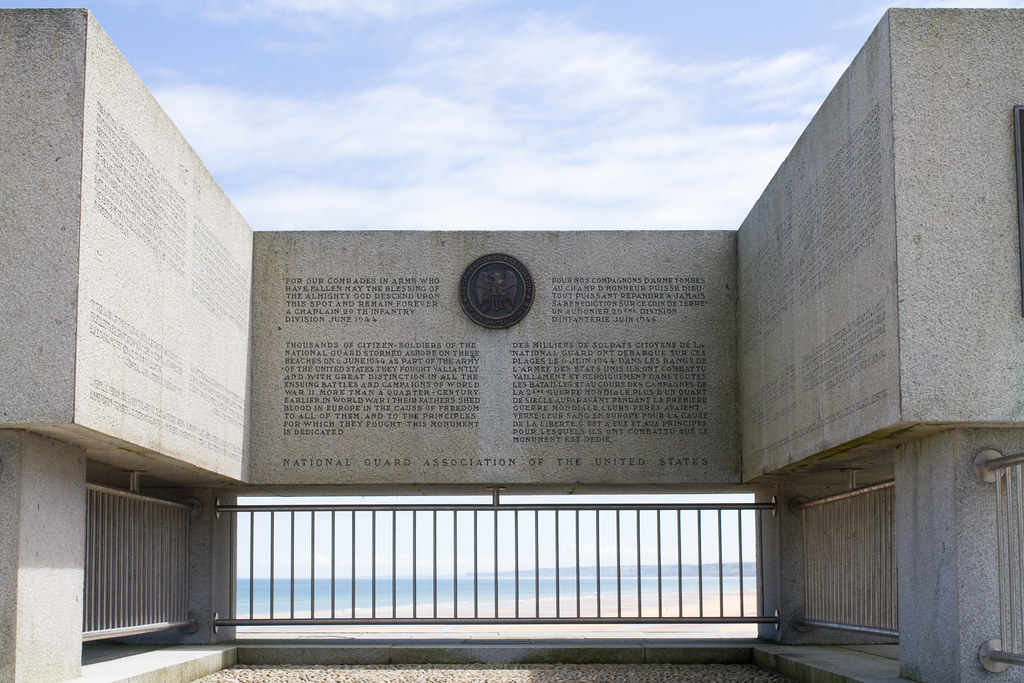
And this monument was in the center of the beach.
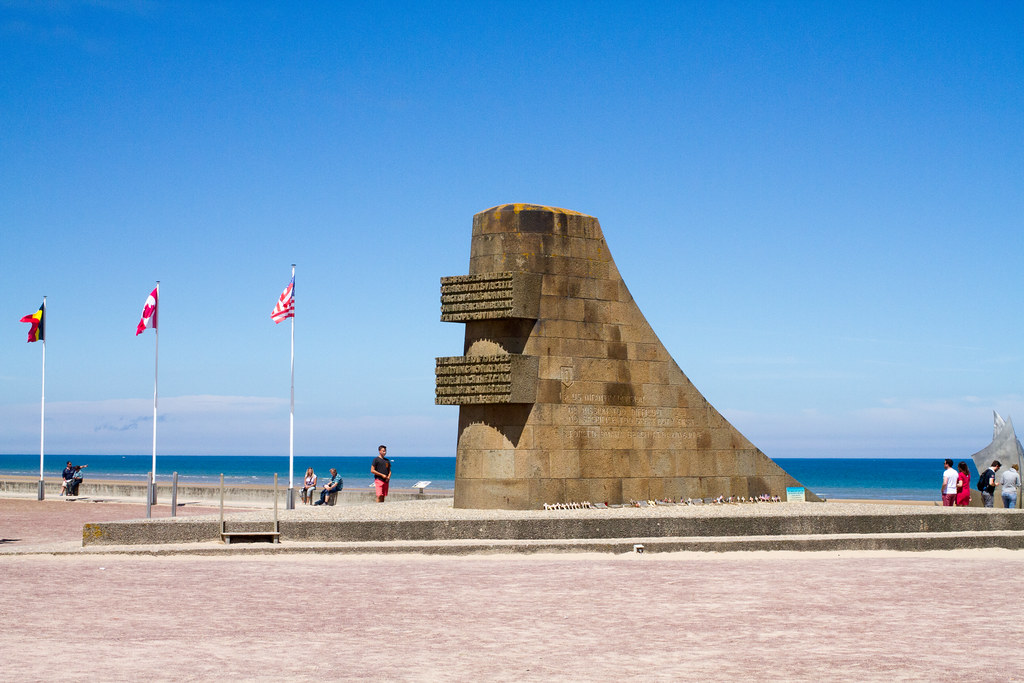
And this one, which was right near the same spot, is more of a contemporary artwork than a monument.
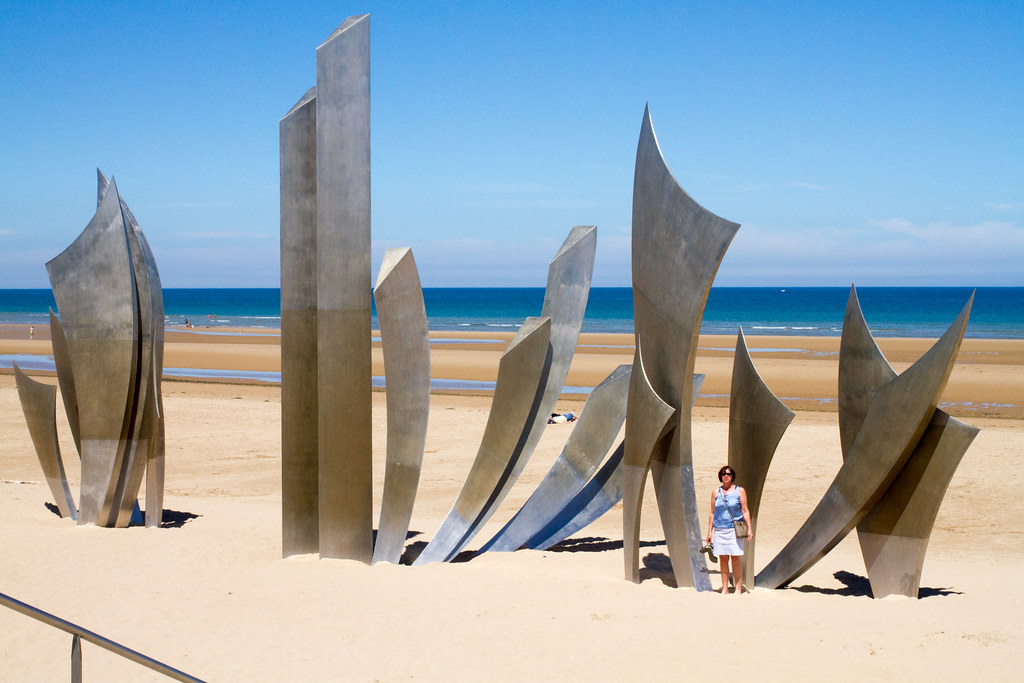
By the way, all the places had a lot of tourists, so it was hard to find a parking space.
In addition, about 5km from here, there is one of the places where the landing operation took place, “Utah Beach”, and there seems to be a relatively large museum related to the Normandy landing operation here, but I gave up visiting it for the sake of time. Because I had seen the museum related to the landing operation in Sainte-Mère-Eglise earlier, and, honestly speaking, I was a little disappointed in the structure full of American feeling “We are great! And I was a little fed up with the American “We are great!
But rather, the biggest reason might be that it was hard to find a shop that even sold takeout snacks lol.
Still, it was a valuable experience to learn yet another thing about the Second World War through the troops of the Airborne and Landing Operations.
Our next stop is Bayeux. Next stop, Bayeux, to learn more about the battle across the English Channel nearly 1,000 years ago, and then back to the Impressionist Festival for a bit. (To be continued)
